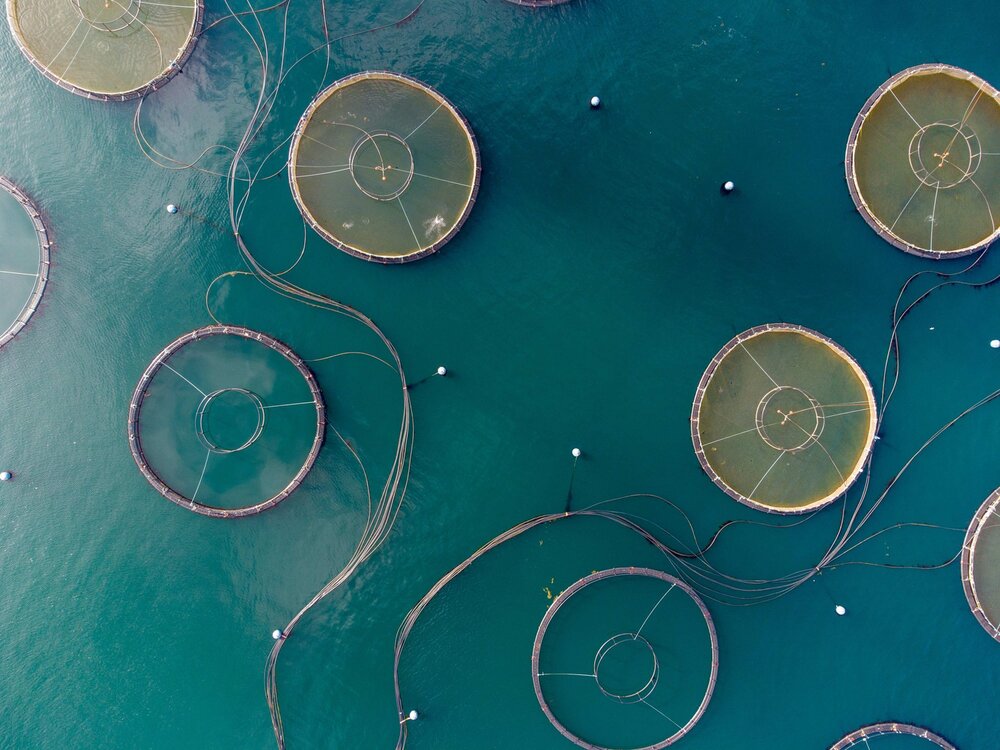Editor’s Note: After exploiting almost every land on Earth, the industrial economy has now moved on to exploit the sea. Exploiters do not view the sea as many of us do: a deep body of water that is home to unimaginably large number of creatures. They see the sea as they view any other place on Earth: a huge reservoir of resources that might profit them. These profits come in many forms: greater wealth, which in turn is control over even more resources, and an ability to surround oneself with and have power over more people to do their bidding. It is for this that they are destroying life on Earth.
But, of course, that is not something they could publicly acknowledge. They have to create a more “righteous” justification for their not-so-righteous action. This is why they, in a cruel twist of words, claim to exploit the sea to protect the environment. In the following piece, Julia Barnes explains how the blue economy is just another form of greenwashing. Julia Barnes is the director of the award-winning documentaries Sea of Life and Bright Green Lies. She is a co-founder of Deep Sea Defenders, a campaign dedicated to protecting the marine environment from seabed mining. deepseadefenders.org
The Blue Economy and Greenwashing
By Julia Barnes
The term “blue economy” was first introduced in 2012, at the United Nations climate change conference in Qatar, COP18.
It has become a buzzword used by ocean conservationists and industry alike. But what does this term actually mean? And more importantly, what are the implications for the ocean?
Definitions vary. For some, the term simply describes economic activities taking place at sea. However, most interpretations include language around sustainability, conservation, or better stewardship.
According to Google/Oxford Languages, the blue economy is defined as:
blue economy noun
an economic system or sector that seeks to conserve marine and freshwater environments while using them in a sustainable way to develop economic growth and produce resources such as energy and food.
Embedded in this definition are the values and assumptions of the dominant culture: the idea that economic growth is desirable, that the ocean consists of resources to be exploited, and that these resources can be “developed” in a sustainable way.
Sustainable has become perhaps the most meaningless word in the English language. It has been pasted in front of nearly every destructive activity imaginable; used as a rhetorical shield to deflect criticism. We now have sustainable mining, sustainable forestry, sustainable fisheries, and sustainable energy. Yet, the real world effects of these activities remain the same: they are destroying the planet.
Some examples of sectors within the blue economy include: industrial fishing, aquaculture, shipping, coastal and marine tourism, energy (wind, waves, tidal, biofuel, offshore oil and gas), ocean-based carbon credits, mineral resources (deep sea mining, dredging, sand mining), and biotechnology (marine genetic resources, industrial enzymes) – all of which the ocean would be better off without.
The problem isn’t that these industries are being done in an unsustainable way and can somehow be tweaked to become sustainable; unsustainability is inherent to what they are, and to the economic model under which they operate – a model that demands infinite extractive growth despite the fact that our planet is finite and has already been largely denuded of life, a model that objectifies the ocean and values it only for the profit humans can extract from it.
The notion of a sustainable blue economy provides the illusion of protection. Meanwhile, industry and corporations are doubling down on their efforts to exploit the sea, extracting living organisms faster than the rate at which they can reproduce, destroying habitat, wiping out vulnerable species, and pushing new frontiers of extraction. Carbon capture schemes are popping up, abusing the sea in a shell game that legitimises continued emissions through supposed carbon “offsets”. Genetic prospecting threatens to privatize and commodify the very DNA of our nonhuman kin. Deep sea mining threatens to disrupt the ocean on a scale not previously seen. Offshore energy projects (for fossil fuels and so-called renewables) impose damage on the sea while providing power to the system that is at the root of the problem.
At a time when we should be pulling back, reducing our impact, and allowing the ocean to regenerate, the blue economy offers instead to continue business as usual, only rebranded.
As with so many of the things that have been marketed to us as “green”, the blue economy is primarily about sustaining a gluttonous way of life at the expense of life on the planet.
What if instead of defining the ocean as a resource, we valued it for what it really is? A living community vital to the functioning of our planet. The foundation of life on Earth. An entity with volition of its own. A force much older, larger, and wiser than we are. Something so powerful, beautiful, and magical, it cannot be described in words but can certainly be felt. Something sacred and deserving of respect.
The ocean is already collapsing under the many assaults of the global industrial economy. Further commodifying it under a vague claim of sustainability will not solve the problem.
